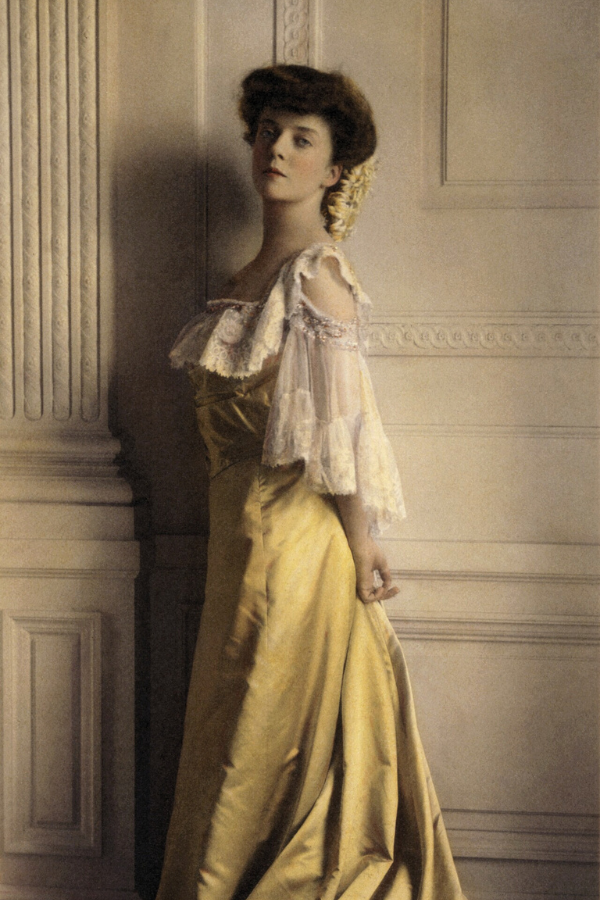

The Bold, Controversial Life of Alice Roosevelt Longworth
Summary
Alice Roosevelt Longworth, the eldest daughter of Theodore Roosevelt, was a formidable figure in American history, known for her rebellious spirit, political influence, and scandalous lifestyle. Born into the prestigious Roosevelt family, she transcended her aristocratic roots to leave a lasting impact on the political and social landscapes of her era. This article delves into her life’s complexity, exploring how Alice challenged early 20th-century norms for women in politics and society, and underscores the enduring significance of her legacy in the study of gender, power, and celebrity within American historical context.
Reflection Questions
- Alice wielded significant political influence behind the scenes, a rarity for women in the early 20th century. Reflect on the evolution of women’s roles in politics since Alice’s time. How far have we come, and what barriers still exist for women in political spheres today?
- Alice was known for her public persona that often bordered on the scandalous. Consider the tension between public image and private reality, especially for women in the public eye. How do you navigate the presentation of yourself in different contexts? Are there aspects of your own life where you feel a similar tension?
- Alice’s story remains profoundly relevant in understanding the intersection of gender, power, and celebrity. Reflect on current figures in politics, culture, or society who remind you of Alice Roosevelt Longworth. In what ways do these figures challenge or reinforce societal norms and expectations?
Journal Prompt
Alice lived her life in the public eye, creating a persona that was both admired and criticized. Think about your own public persona versus your private self. Are there aspects of your true self that you feel you must hide? How do you negotiate the tension between authenticity and societal expectations?
The eldest daughter of Theodore Roosevelt, Alice Roosevelt Longworth was one of the most captivating and polemical figures in American political and social history. Born into the illustrious Roosevelt dynasty, Alice not only inherited the family’s aristocratic allure but also a spirit of rebellion and an unyielding zest for life that would see her leaving an indelible mark on the society and politics of her time. Her life was a complex web of high society glamour, political maneuvering, and scandalous exploits, making her a subject of endless fascination for both contemporaries and historians. In this article, we examine the multifaceted life of Alice Roosevelt Longworth, examining how her defiant nature, significant political sway, and lasting legacy challenge conventional narratives about the roles of women in early 20th-century American politics and society, and why her story remains profoundly relevant in understanding the intersection of gender, power, and celebrity in American history.
Alice’s Early Life as a Roosevelt
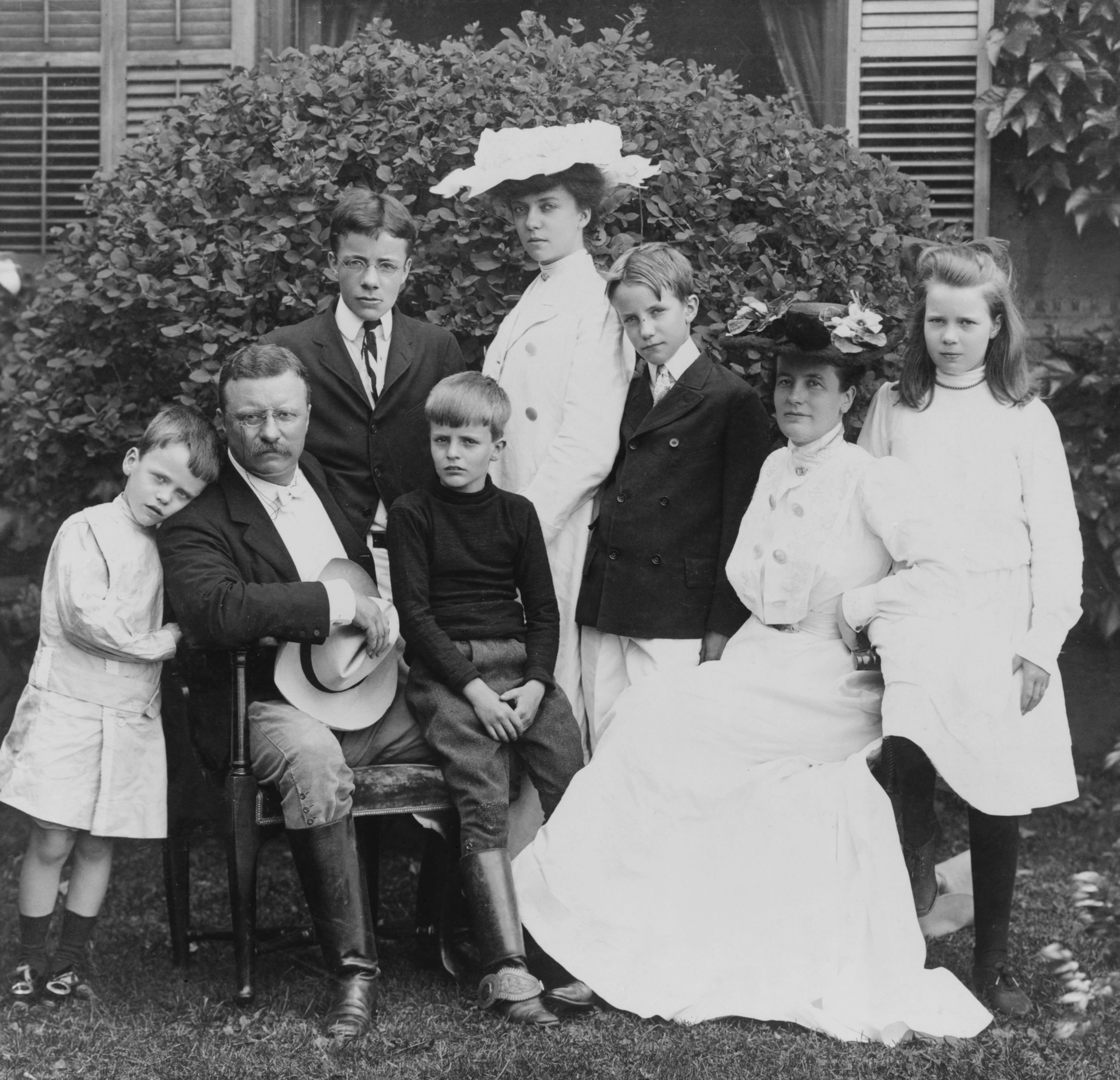

Alice Lee Roosevelt was born on February 12th, 1884, into the prominent Roosevelt family, emblematic of American aristocracy and political ambition. Called “Baby Lee” by her family, Alice’s early childhood was marked by the complexities of a family deeply involved in public service, setting the stage for her own unique path. Growing up, young Alice navigated the intricate dynamics of a household that valued leadership, intellect, and civic duty, traits that would deeply influence her character and actions in the years to come.
The death of Alice’s mother, Alice Hathaway Lee Roosevelt, just two days after her birth, cast a long shadow over her early life. This tragedy deeply affected Theodore Roosevelt, leading to a period of profound grief that momentarily distanced him from his infant daughter. However, over time, their relationship evolved into one of mutual respect and affection. Alice’s bond with her father was complex; she admired his public persona and political achievements, yet their personal interactions were often marked by a battle of wills, reflecting Theodore’s strong personality and Alice’s determined independence.
Raised in an environment steeped in political discourse and national service, Alice’s education was both formal and informal, encompassing private tutors and personal mentorship from family members engaged in the political arena. This upbringing in a politically charged atmosphere not only sharpened her intellect but also cultivated her keen interest in political affairs and social activism. Her education extended beyond academics, as she absorbed the nuances of political strategy and public engagement from an early age, laying the groundwork for her future role as a political influencer and societal commentator.
The Influence of Women in Alice’s Early Life
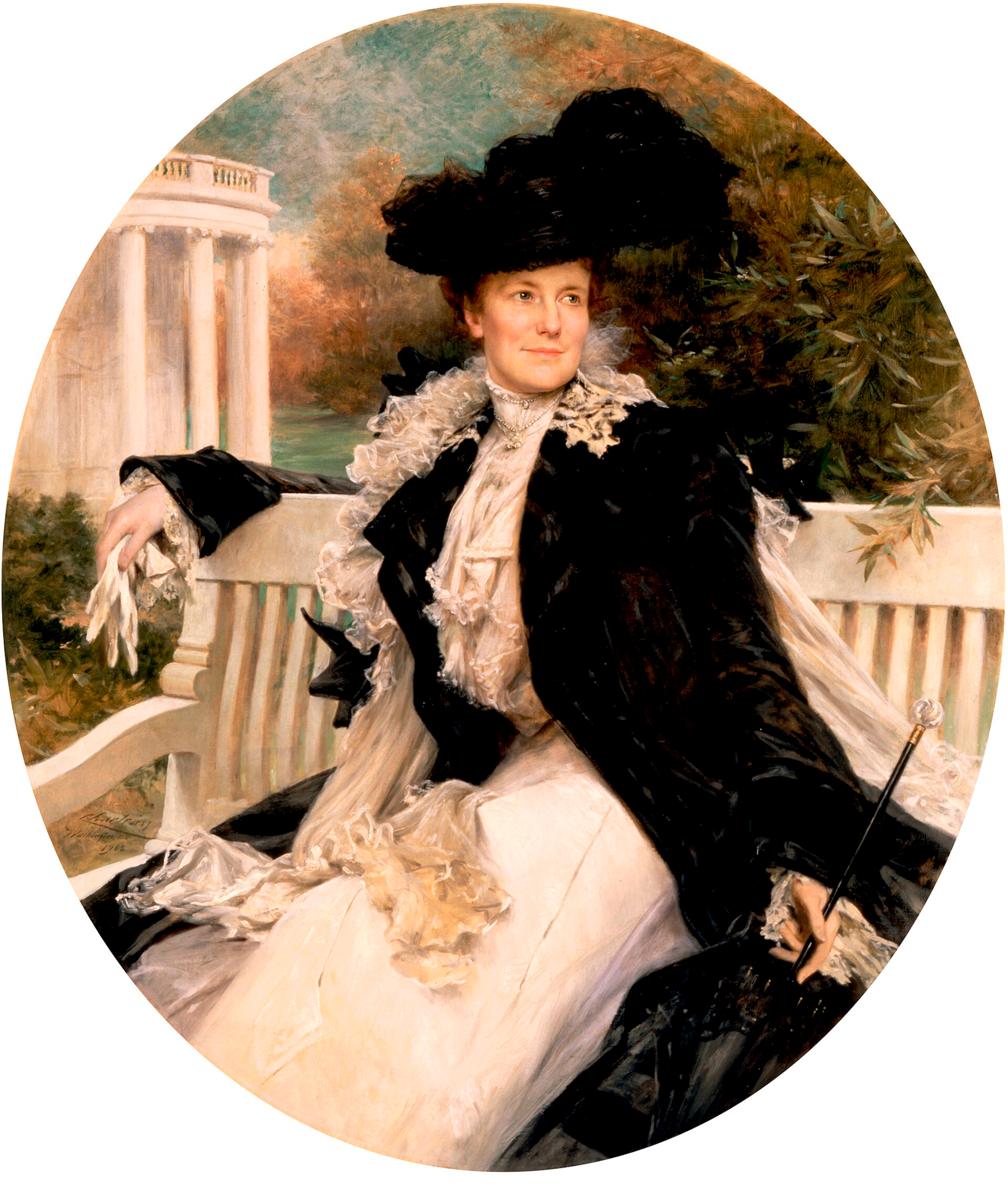

Edith Kermit Carow, who later became Edith Roosevelt upon marrying Theodore Roosevelt, played a significant role in Alice Roosevelt Longworth’s life, especially after she stepped into the role of Alice’s stepmother. While Alice was Theodore Roosevelt’s daughter from his first marriage to Alice Hathaway Lee, Edith brought a different maternal influence into her life after marrying Theodore in 1886, two years after Alice Hathaway Lee’s death.
As a young girl, Alice found herself navigating a complex family dynamic with the introduction of Edith as her stepmother. Edith was determined to bring order and discipline to the Roosevelt household, which included Alice and her younger half-siblings born from Edith’s marriage to Theodore. This transition was not without its challenges, as Alice had been accustomed to a degree of independence and attention as Theodore’s first daughter. Edith’s influence extended to attempting to moderate Alice’s behavior, which was often described as spirited and headstrong, qualities that were both celebrated and critiqued in the public eye.
Edith’s role in Alice’s life was multifaceted; she provided a stable home environment and was instrumental in the upbringing of Alice’s younger siblings, thereby indirectly influencing Alice’s own development. However, the relationship between Edith and Alice was complex, marked by a blend of respect, tension, and differing personalities. Edith’s more conventional views on women’s roles and behavior clashed with Alice’s rebellious and independent nature, leading to a dynamic that was both challenging and influential in shaping Alice’s character.
Fuel your creative fire & be a part of a supportive community that values how you love to live.
subscribe to our newsletter
Bamie’s Impact on Alice’s View of Women in Politics
Alice’s relationship with Anna Roosevelt, affectionately known as “Bamie” or “Bye,” was equally (if not more) significant. Bamie, Theodore Roosevelt’s older sister, was a strong and influential presence in the Roosevelt family, known for her intelligence, organizational skills, and strong moral compass. After the death of Alice’s mother and the subsequent emotional withdrawal of her father, Theodore Roosevelt, Bamie stepped in to provide care and stability for her niece.
Bamie’s influence on Alice extended beyond mere caregiving. She provided Alice with emotional support and a sense of continuity during a tumultuous time in her young life. Bamie’s own experiences with physical disability and overcoming personal challenges likely imparted lessons of resilience and determination to Alice. Furthermore, Bamie’s prominent role within the Roosevelt family and her engagement with the social and political issues of the day would have offered Alice a model of female leadership and intellectual engagement.
As a surrogate maternal figure, Bamie helped to fill the void left by Alice’s mother’s death, ensuring that she received proper care and education. This early intervention by Bamie played a significant role in shaping Alice’s character, imbuing her with the confidence and strength that would become hallmarks of her personality. Bamie’s influence was also pivotal in maintaining the connection between Alice and her father during periods when Theodore’s political career and personal grief kept him distant.
Moreover, Bamie’s own social and political involvement likely inspired Alice’s later engagement with politics and society. Through Bamie, Alice was exposed to the realities and responsibilities of public service, as well as the possibilities available to women in the public sphere, albeit within the constraints of their era. This exposure helped to cultivate Alice’s burgeoning interest in politics and social issues, laying the groundwork for her later life as a political hostess and influential figure in Washington, D.C.
Alice as the First Daughter
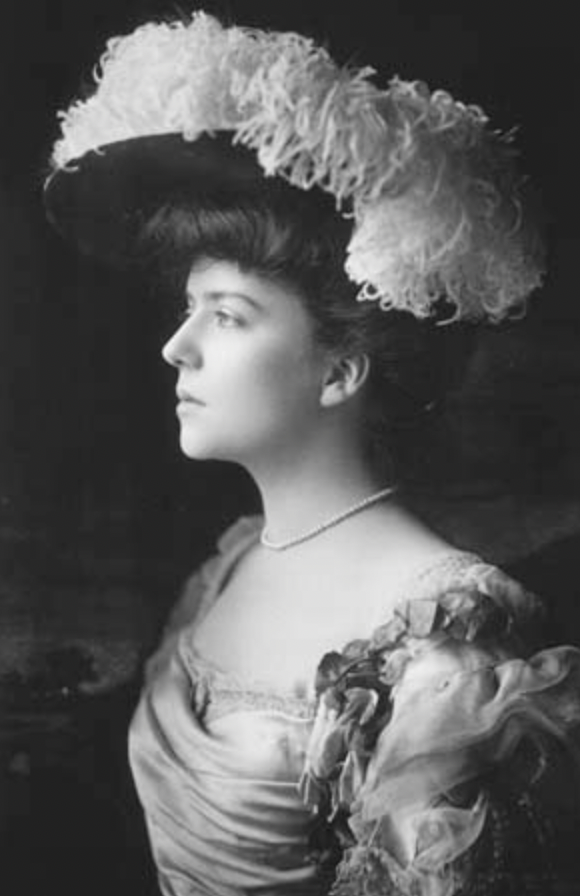

During Theodore Roosevelt’s presidency, Alice Roosevelt Longworth became a defining figure of the White House, embodying a public persona that blended aristocratic grace with a flair for the dramatic. The press was captivated by her, often chronicling her every move, from her fashion choices to her social engagements, making her an early 20th-century celebrity. They even nicknamed her “Princess Alice” and referred to her as “the other Washington Monument.”
Alice was not just the daughter of President Theodore Roosevelt. She became a symbol of young, vibrant America, challenging traditional expectations of women’s behavior and societal roles. Alice used this attention to her advantage, navigating the political and social landscapes with a sophistication that belied her years, and in doing so, she set a new precedent for how women in her position could wield influence.
Her Early Rebellions
Alice’s tenure as the First Daughter was marked by a series of incidents that underscored her rebellious spirit. She was known for her penchant for smoking cigarettes on the White House roof, a habit that flouted societal norms regarding female decorum at the time. In addition, she famously carried a pet snake named Emily Spinach in her purse, much to the astonishment (and sometimes horror) of Washington’s elite.
These actions were not mere youthful indiscretions but calculated demonstrations of her independence and a rejection of the constraints placed on women of her status. Through these bold acts, Alice not only captivated the public’s imagination but also challenged the expectations of her gender and social position.
Formation of Alice’s Political and Social Views
The period of Alice’s life within the White House was crucial in the formation of her political and social views. Surrounded by the political elite (including her cousins Franklin and Eleanor Roosevelt) and immersed in the day-to-day operations of her father’s administration, she developed a keen understanding of political strategy and public policy. This exposure, combined with her natural intellect and curiosity, helped shape her into a politically savvy individual with strong opinions on national and international affairs.
Alice’s unique position allowed her to witness firsthand the complexities of governance and the importance of public service, influencing her enduring belief in the power of political engagement and shaping her future endeavors in the political arena. Her experiences during these years laid the foundation for her later role as a political hostess and advisor, signifying her transition from a presidential daughter to a political force in her own right.
Alice’s Adulthood: Her Marriage and Personal Life as a Young Woman in Washington
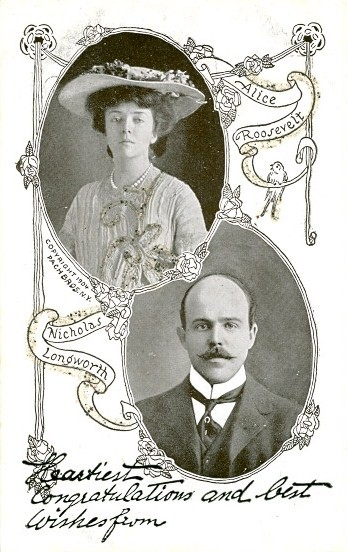

Alice Roosevelt’s marriage to Nicholas Longworth in 1906 was more than a union of two prominent individuals. It was a convergence of significant political and social realms. Nicholas, a Congressman from Ohio who would later become Speaker of the House, brought his own political weight to the marriage, intertwining their lives with the fabric of American politics. This alliance between the Roosevelts and the Longworths symbolized a powerful merging of political dynasties, enhancing Alice’s influence within Washington circles.
The marriage, while bolstering her social standing, also subjected Alice Lee Roosevelt Longworth to the scrutinizing eyes of the public and political insiders, navigating her role as a politician’s wife with her characteristic independence and wit. The union had its share of challenges, including Nicholas’s infidelities and Alice’s own controversial interactions, yet it underscored her complex relationship with power, politics, and personal identity within the societal expectations of her time.
Her Relationships in Washington Society
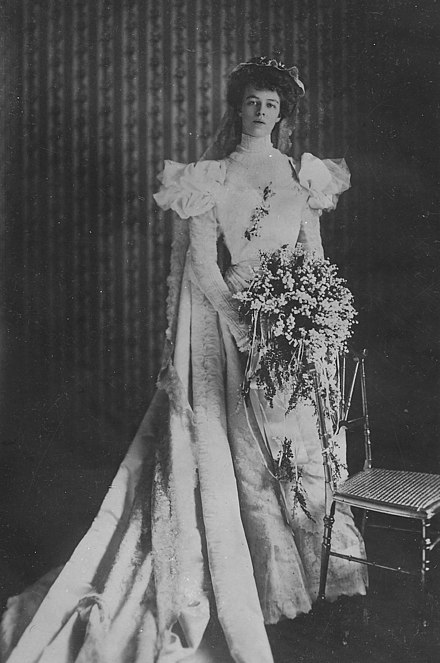

Alice Roosevelt Longworth’s relationships within the Washington D.C. elite were a dynamic blend of friendships, mentorships, and rivalries, reflecting her intricate position in the social and political hierarchies. Her salon, an epicenter of political discourse, attracted senators, diplomats, and intellectuals, demonstrating her influence and networking prowess. Alice’s friendships were strategic and often aligned with her political interests, yet she was known for her sharp tongue and candid opinions, which occasionally led to strained relations.
Her rivalry with Eleanor Roosevelt, her cousin and later the First Lady, highlighted differing political ideologies and personal tensions within the Roosevelt family. These relationships, both harmonious and contentious, illustrate Alice’s adeptness at navigating the complex social networks of Washington, leveraging her social capital to influence political discourse and decision-making.
Alice as a Mother in the Public Eye
As a mother, Alice Roosevelt Longworth faced the complexities of balancing her public persona with her private responsibilities. Her daughter, Paulina Longworth, was born amidst the whirlwind of her social and political engagements, adding another dimension to Alice’s multifaceted life. The relationship between Alice and Paulina was marked by love but also the challenges of Alice’s demanding social calendar and the expectations placed upon them by their prominent status.
Alice’s approach to motherhood was influenced by her upbringing and the era’s norms, yet she endeavored to instill in Paulina a sense of independence and strength. The complexities of her personal life, including her marriage’s ups and downs and her role as a mother, reveal the nuanced reality behind her public facade, showcasing her resilience and adaptability in the face of personal and societal expectations.
Her Political Influence and Activities
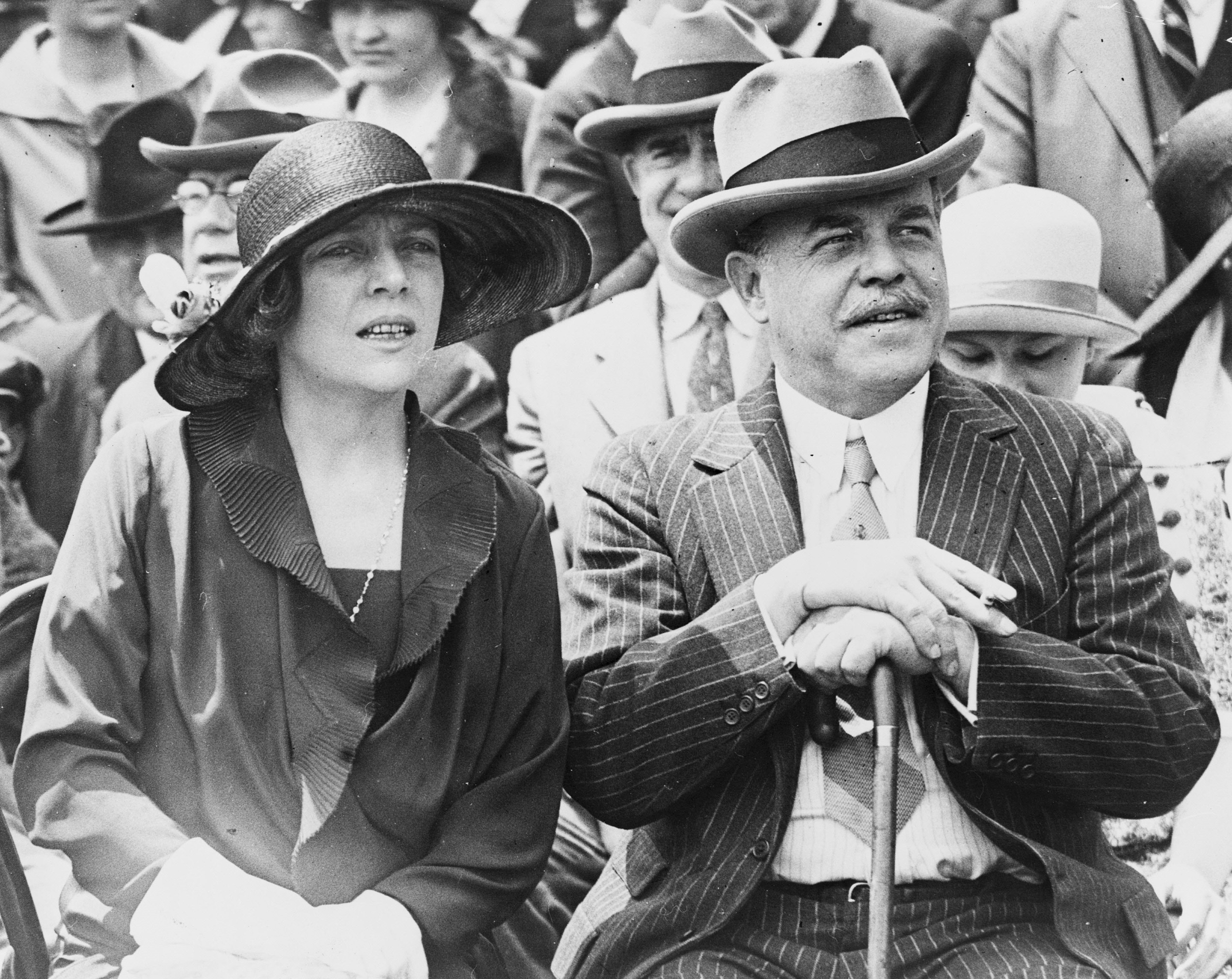

Alice Roosevelt Longworth was an active and shrewd participant in the political arena, leveraging her relationships and public persona to affect change and sway opinion. Throughout Theodore Roosevelt’s presidency, Alice was a political symbol, her actions and opinions reflecting broader societal shifts and the tumultuous nature of early 20th-century American politics.
Her marriage to Nicholas Longworth further cemented her place within the political elite, allowing her to navigate both the Republican and Progressive platforms her father and husband represented, respectively. Alice’s unique position allowed her to influence key political decisions and strategies, often acting as an informal advisor to both men. Her sharp political instincts and willingness to speak her mind made her a formidable figure within Washington, D.C., respected and feared in equal measure by politicians and power brokers.
Involvement in Political Campaigns
Alice Roosevelt Longworth’s involvement in political campaigns was marked by her keen understanding of the American political landscape and her ability to mobilize support for or opposition against specific candidates. Her endorsement was sought after, and her disapproval feared, as she wielded her social influence and political savvy to affect electoral outcomes.
Notably, her support extended beyond mere party lines, reflecting her personal beliefs and the influence of her father’s Progressive ideals. Alice was known to host salons and gatherings at her home, where political strategies were discussed, and alliances were formed or broken. These gatherings were not just social events but were instrumental in shaping the political discourse of the time. Her role in these campaigns highlighted her as a significant political influencer, capable of shaping public opinion and political careers with her endorsements, criticisms, and strategic advice.
Alice’s legacy as a political force demonstrates the power of personality and intellect in the complex machinery of American politics, showcasing her ability to navigate and influence the political landscape with acumen and wit.
Alice’s Controversies and Scandals as a Bold, Unconventional Woman in Politics
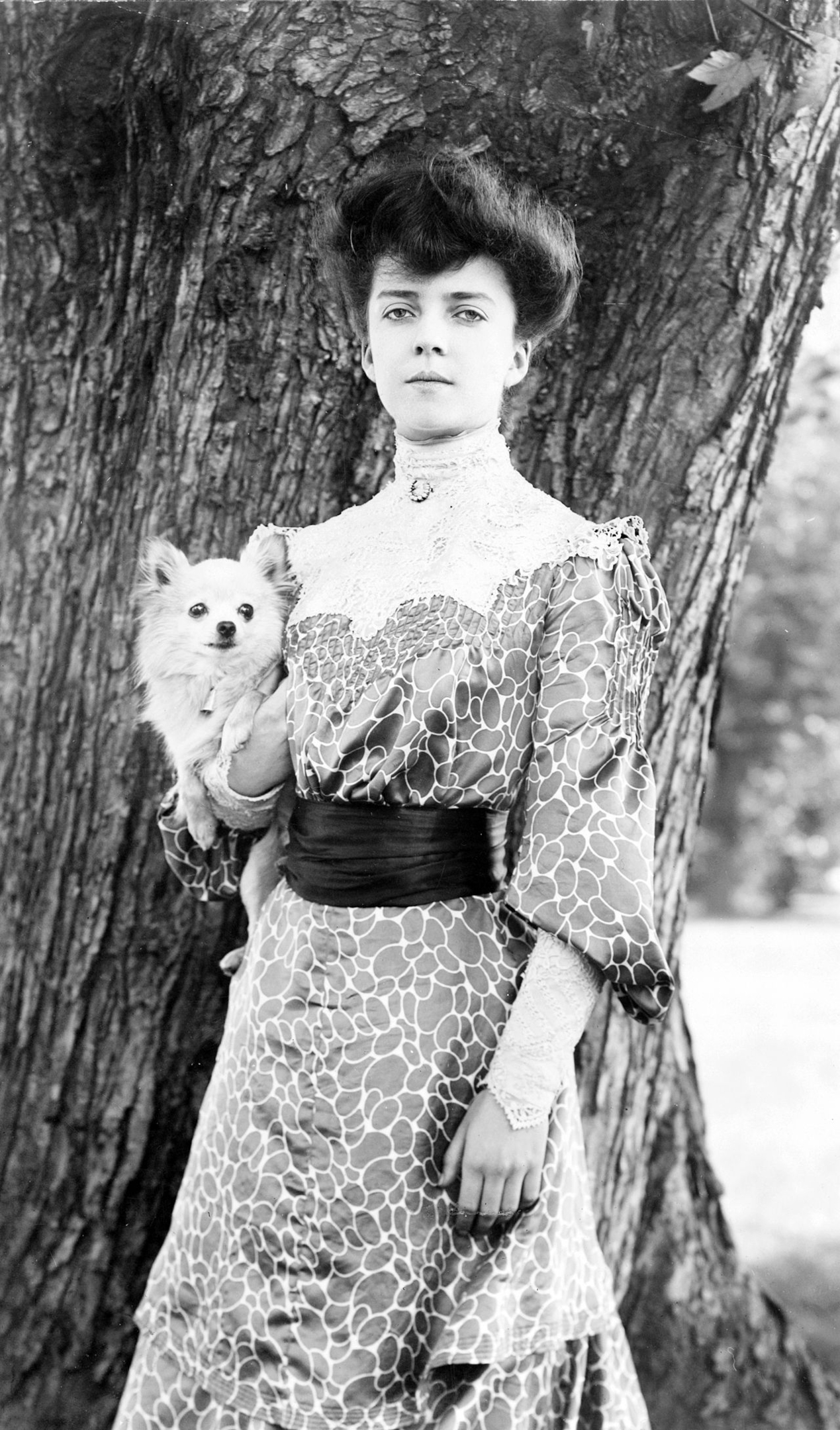

Alice Roosevelt Longworth was no stranger to controversy, often finding herself at the center of public attention not just for her political insights but also for her bold statements and behaviors that frequently clashed with the era’s norms. Her outspoken nature and refusal to conform to the expectations of women in her social standing led to numerous scandals, captivating the public and irking the political establishment.
Alice thrived in the spotlight, using her visibility to challenge societal norms and express her personal and political opinions without restraint. Her unconventional behavior, from her fashion choices to her public conduct, broke the mold of demure femininity and set a new precedent for how women of her status could express themselves.
Among the numerous incidents that made headlines, her father’s remark that he could either run the country or control her behavior, but not both, remains legendary for its candid reflection of her personality. She famously smoked cigarettes in public, carried a pet snake in her purse, and was known for her sharp wit, often at the expense of political figures.
One of her most notorious political jabs was when she implied that President Thomas Woodrow Wilson ]was overly righteous and sanctimonious, a comment that certainly ruffled feathers in Washington. Alice’s actions, such as placing a voodoo doll of the then-First Lady on her dinner table, were bold statements that transcended mere personal eccentricities, serving as deliberate provocations that questioned the status quo and highlighted her complex relationship with the political and social elites.
Her Legacy and Later Years
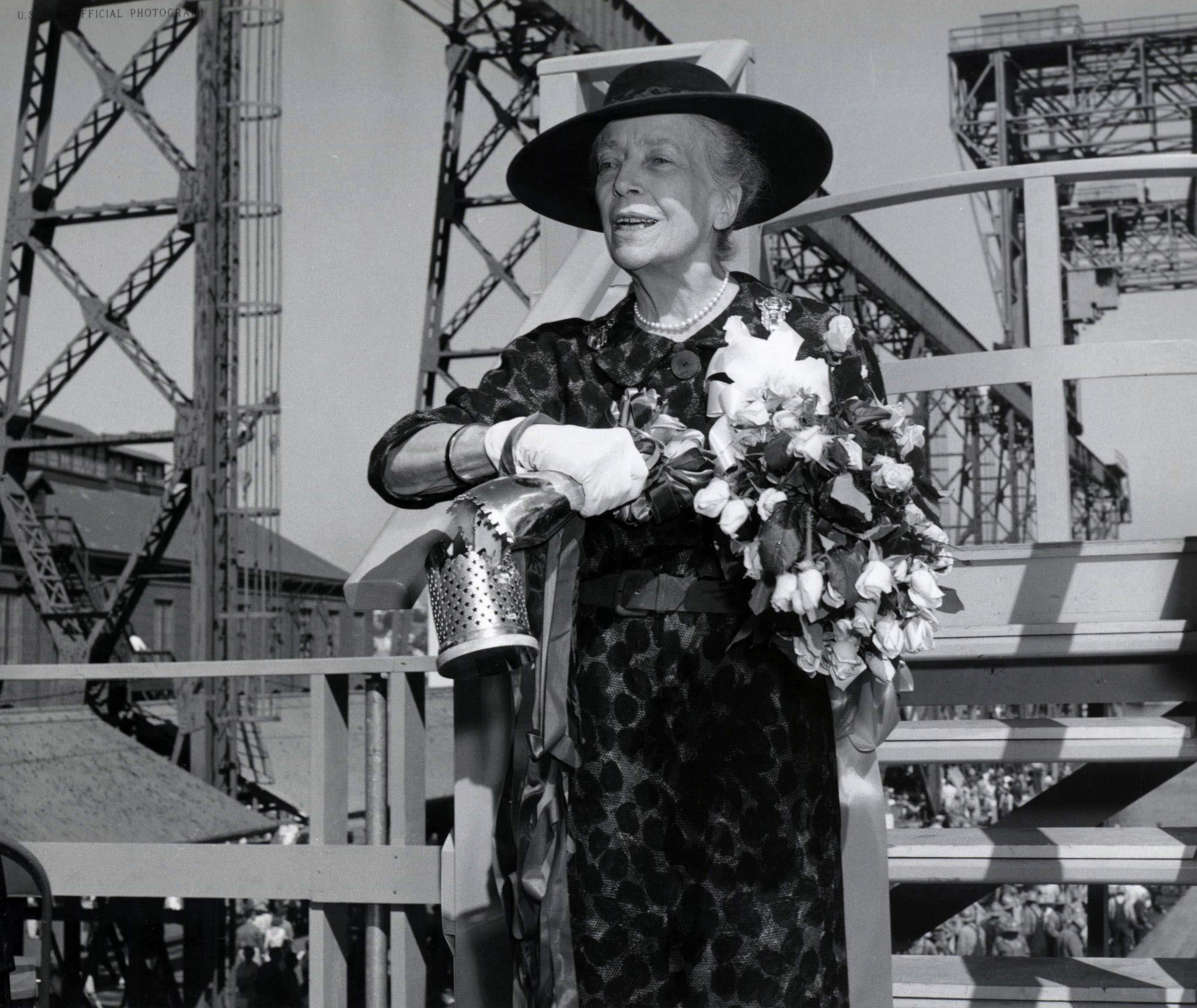

Alice Roosevelt Longworth’s influence persisted long after the death of her husband, Nicholas Longworth, in 1931, remaining a significant figure in Washington’s political and social scenes for decades. Her home continued to be a gathering place for politicians, diplomats, and journalists, maintaining her status as a doyenne of Washington society. Her keen observations and involvement in political matters ensured that her voice remained relevant, influencing public opinion and political discussions well into her later years.
As a political commentator and author, Alice wielded her pen with the same sharpness as her tongue. Her autobiography, Crowded Hours, provides a candid look into her eventful life, offering insights into the political and social whirlwind in which she lived. Her writing, like her verbal quips, was infused with her characteristic wit and incisive observations, cementing her legacy as one of the most formidable and articulate figures in American politics. Her famous aphorisms, such as “If you haven’t got anything nice to say about anybody, come sit next to me,” have endured, epitomizing her approach to life and politics.
Alice Roosevelt Longworth’s legacy is a complex tapestry of influence, controversy, and pioneering spirit. Her impact on the roles of women in politics and society cannot be overstated; she challenged and expanded the boundaries of what was deemed acceptable for women of her time, paving the way for future generations to engage more freely in political and public life. Her life serves as a testament to the power of personality, intellect, and unwavering conviction in challenging societal norms and influencing the course of political discourse.
Final Thoughts on Alice’s Uncompromising Approach to Life
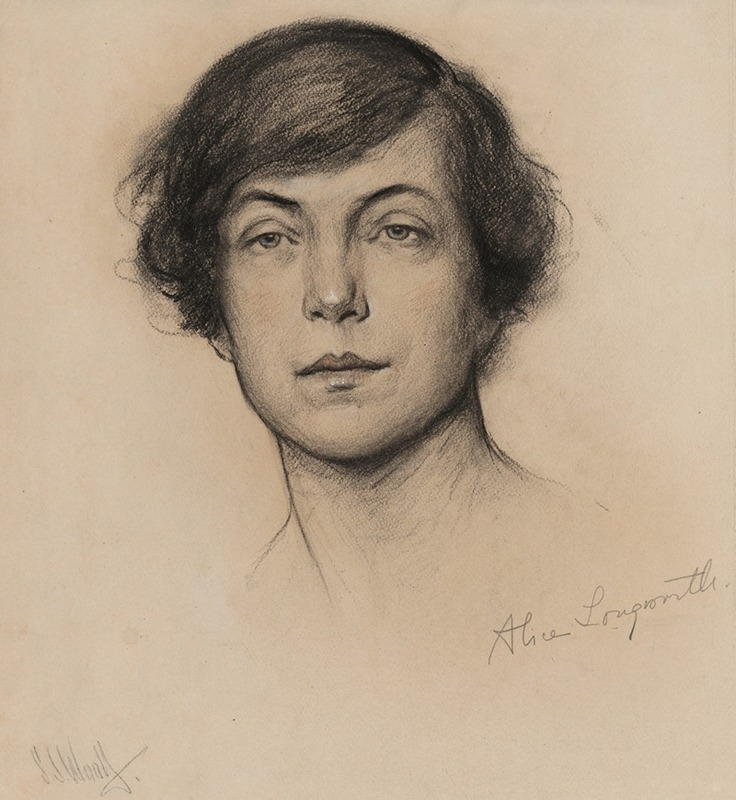

From her days as the rebellious First Daughter to her enduring role as a political maven, Alice challenged the conventions of her time, leveraging her unique position to shape the discourse around her. Her life was marked by a striking balance between her public persona—a blend of wit, charm, and boldness—and a private life filled with personal challenges and complex relationships.
Alice’s legacy is a testament to her multifaceted character and her ability to navigate the intricacies of both the political landscape and societal expectations. Her story not only highlights the complexities of her era but also reflects the evolving roles of women in the public sphere. Through her life, Alice Roosevelt Longworth offers a compelling narrative about the power of individuality and the impact one person can have on the course of history, providing insight into the changing dynamics of women’s participation in American political and social life.
Alice’s journey, marked by moments of triumph and tribulation, underscores the indelible mark she left on the nation, reminding us of the enduring significance of challenging the status quo and forging one’s path. We encourage our readers to learn even more about the amazing woman in this episode produced by Whatshername.
Design Dash
Join us in designing a life you love.
-
All About Our 7-Day Focus & Flex Challenge
Sign up before August 14th to join us for the Focus & Flex Challenge!
-
Unique Baby Names Inspired by Incredible Women from History
Inspired by historic queens, warriors, artists, and scientists, one of these unusual baby names might be right for your daughter!
-
Finding a New 9 to 5: How to Put Freelance Work on a Resume
From listing relevant skills to explaining your employment gap, here’s how to put freelance jobs on your resume.
-
What is Generation-Skipping, and How Might it Affect Sandwich Generation Parents?
The emotional pain and financial strain of generation skipping can be devastating for Sandwich Generation parents.
-
Four Material Libraries Dedicated to Sustainability, Preservation, and Education
From sustainable building materials (MaterialDriven) to rare pigments (Harvard), each materials library serves a specific purpose.
-
Do You Actually Need a Beauty Fridge for Your Skincare Products? (Yes and No.)
Let’s take a look at what dermatologists and formulators have to say about whether your makeup and skincare belong in a beauty fridge.








